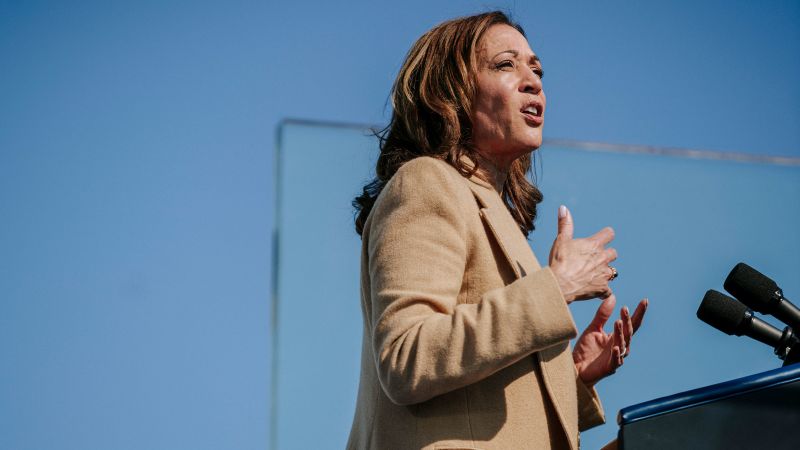
Harris campaign has agreed to debate rules, including muted mics
CNN
Kamala Harris’ campaign has accepted the terms of next week’s presidential debate with former President Donald Trump, including the fact that the candidates’ microphones will be muted when it is not their turn to speak, according to a person familiar with the debate negotiations.
Kamala Harris’ campaign has accepted the terms of next week’s presidential debate with former President Donald Trump, including the fact that the candidates’ microphones will be muted when it is not their turn to speak, according to a person familiar with the debate negotiations. However, in a letter to ABC News Wednesday afternoon agreeing to the rules, the Harris campaign again laid out their objections to the muted mics condition, insisting that they believe the vice president will be “disadvantaged” by the format. “Vice President Harris, a former prosecutor, will be fundamentally disadvantaged by this format, which will serve to shield Donald Trump from direct exchanges with the Vice President. We suspect this is the primary reason for his campaign’s insistence on muted microphones,” the letter from the Harris campaign to the network, shared in part with CNN, said. ABC News officially announced the rules later Wednesday, noting that both candidates had agreed to the format. The network, according to the source familiar, has offered assurances to the Harris campaign that if there is significant cross talk between Harris and Trump, it may choose to turn on the mics so that the public can understand what is happening, the moderator would discourage either candidate from interrupting constantly and the moderator would also work to explain to viewers what is being said. Pool reporters, who can report on what they hear both sides saying, will also be in the room, the source added.

One year ago this week, Joe Biden was president. I was in Doha, Qatar, negotiating with Israel and Hamas to finalize a ceasefire and hostage release deal. The incoming Trump team worked closely with us, a rare display of nonpartisanship to free hostages and end a war. It feels like a decade ago. A lot can happen in a year, as 2025 has shown.

Botched Epstein redactions trace back to Virgin Islands’ 2020 civil racketeering case against estate
A botched redaction in the Epstein files revealed that government attorneys once accused his lawyers of paying over $400,000 to “young female models and actresses” to cover up his criminal activities

The Justice Department’s leadership asked career prosecutors in Florida Tuesday to volunteer over the “next several days” to help to redact the Epstein files, in the latest internal Trump administrationpush toward releasing the hundreds of thousands of photos, internal memos and other evidence around the late convicted sex offender Jeffrey Epstein.

The US State Department on Tuesday imposed visa sanctions on a former top European Union official and employees of organizations that combat disinformation for alleged censorship – sharply ratcheting up the Trump administration’s fight against European regulations that have impacted digital platforms, far-right politicians and Trump allies, including Elon Musk.









